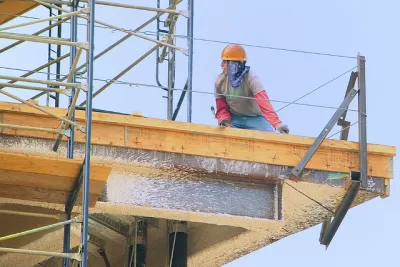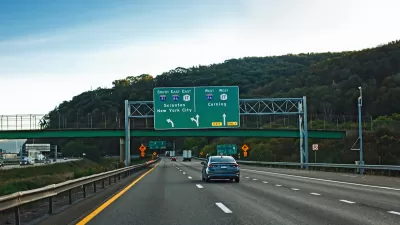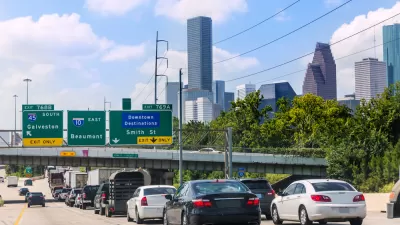A new book argues that accidental deaths, from car crashes to industrial accidents, are a result of a 'rapacious' capitalist system that prioritizes profits over people.

Streetsblog published an excerpt from Jessie Singer's There Are No Accidents: The Deadly Rise of Injury and Disaster — Who Profits and Who Pays the Price, a new book that "surveys 'accidents' arising from industries as diverse as energy, poultry, automobiles and pharmaceuticals to argue that the disasters we’ve come to accept as inevitable are, in fact, preventable — and that they stem from a rapacious capitalism that has distorted our politics because it values profits over people’s lives." According to Singer, "Accidents happen in America, and happen here at outsize rates compared to our peer countries around the globe, because everything in America is built with a mind toward profit and thrift, and on a foundation of white supremacy, a culture of punishment, and a myth of self-reliance."
From the book:
The solution is simple: Stop punishing mistakes and pretending that people are perfectible. Trade in the bootstraps parable for an acceptance that people need tools and resources to survive, and an insistence that society should provide them. Apply a harm-reduction model to every corner of the built environment. Construct workplaces, roads, and homes, but also laws and policies, with a focus on reducing accident-related damage, cushioning the blow of everything, and protecting life, health, and dignity at any and all cost. Remember that the people who die most often by accident are often the most vulnerable — the youngest and the oldest, the most discriminated against and least wealthy — and start there.
FULL STORY: EXCERPT: There are No ‘Accidents’ — We Have Been Fooled into Thinking There Are

Trump Administration Could Effectively End Housing Voucher Program
Federal officials are eyeing major cuts to the Section 8 program that helps millions of low-income households pay rent.

Planetizen Federal Action Tracker
A weekly monitor of how Trump’s orders and actions are impacting planners and planning in America.

Ken Jennings Launches Transit Web Series
The Jeopardy champ wants you to ride public transit.

Rebuilding Smarter: How LA County Is Guiding Fire-Ravaged Communities Toward Resilience
Los Angeles County is leading a coordinated effort to help fire-impacted communities rebuild with resilience by providing recovery resources, promoting fire-wise design, and aligning reconstruction with broader sustainability and climate goals.

When Borders Blur: Regional Collaboration in Action
As regional challenges outgrow city boundaries, “When Borders Blur” explores how cross-jurisdictional collaboration can drive smarter, more resilient urban planning, sharing real-world lessons from thriving partnerships across North America.

Philadelphia Is Expanding its Network of Roundabouts
Roundabouts are widely shown to decrease traffic speed, reduce congestion, and improve efficiency.
Urban Design for Planners 1: Software Tools
This six-course series explores essential urban design concepts using open source software and equips planners with the tools they need to participate fully in the urban design process.
Planning for Universal Design
Learn the tools for implementing Universal Design in planning regulations.
Ada County Highway District
Clanton & Associates, Inc.
Jessamine County Fiscal Court
Institute for Housing and Urban Development Studies (IHS)
City of Grandview
Harvard GSD Executive Education
Toledo-Lucas County Plan Commissions
Salt Lake City
NYU Wagner Graduate School of Public Service





























